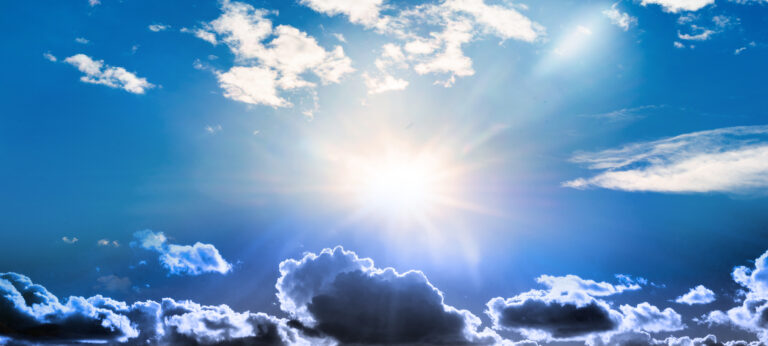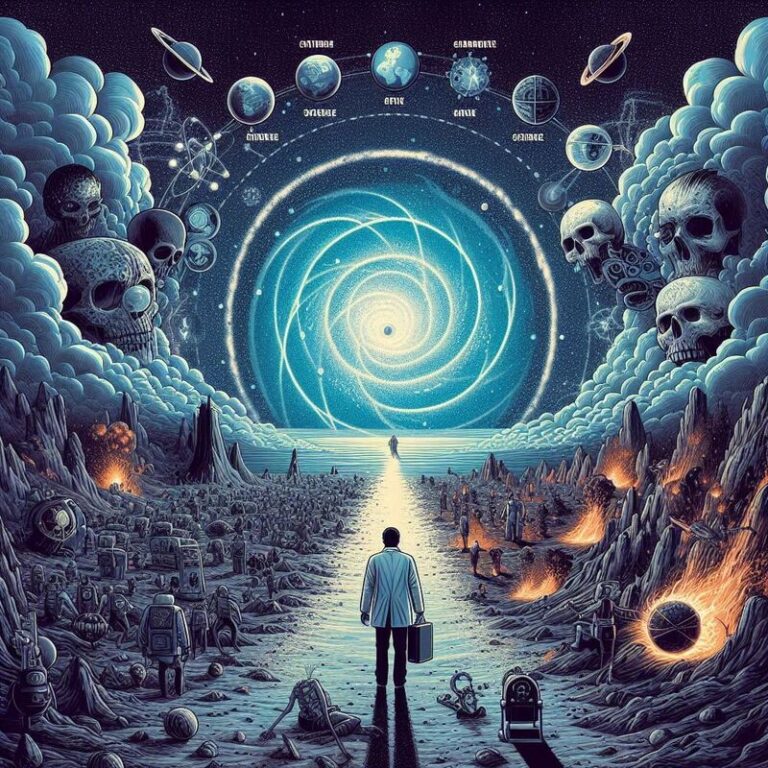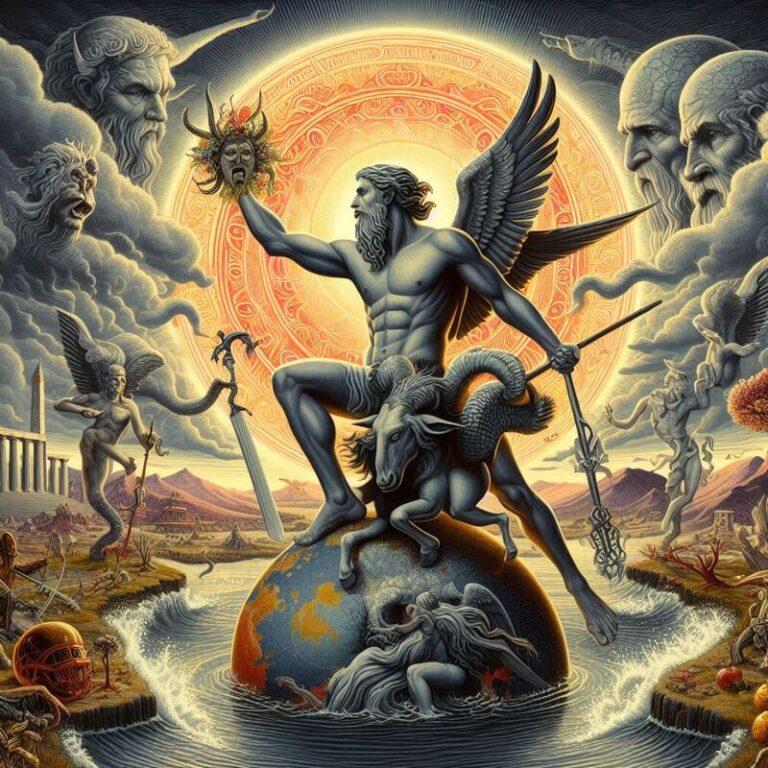From Catastrophe to Courage: Exploring End of the World Myths for a Brighter Future
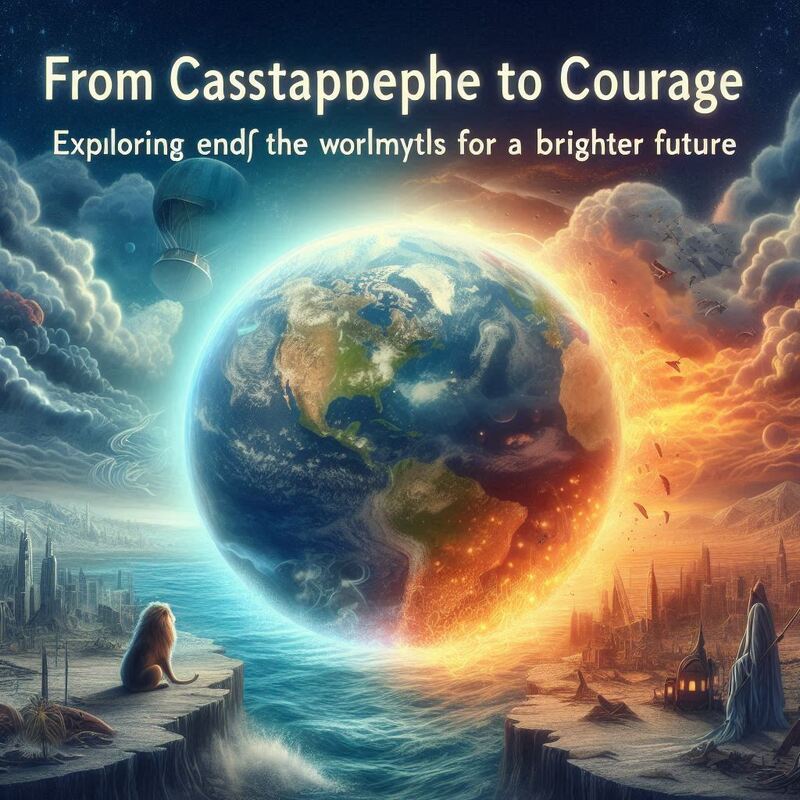
From Catastrophe to Courage
Throughout history, civilizations across the globe have grappled with the concept of the end of the world. From cataclysmic floods to celestial events, the idea of an apocalyptic event has permeated mythologies, religions, and cultural narratives. While these tales often depict destruction and chaos, they also carry profound messages of resilience, renewal, and the enduring human spirit. In this exploration, we delve into end-of-the-world myths from various cultures, uncovering the threads of courage and hope that weave through these ancient stories, and pondering their relevance in shaping a brighter future for humanity.
The Universal Fear of Apocalypse
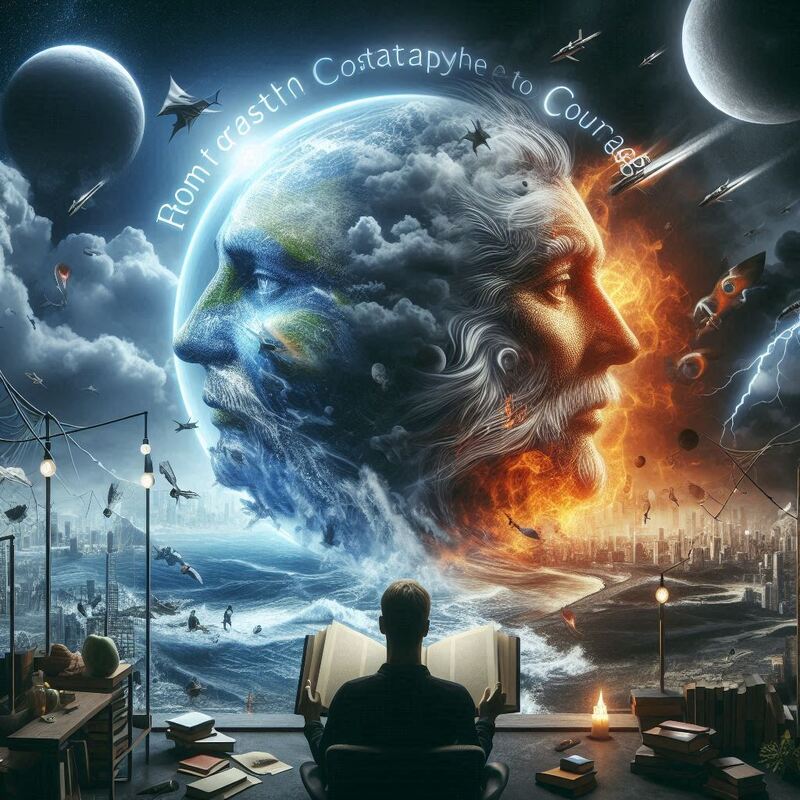
From Catastrophe to Courage
The fear of an impending apocalypse is deeply rooted in human consciousness, reflecting our primal instinct for survival and our awe in the face of natural forces beyond our control. End-of-the-world myths serve as cautionary tales, warning of the consequences of human folly, hubris, and disregard for the natural order. Whether portrayed as the wrath of vengeful gods, cosmic upheavals, or environmental catastrophes, these myths speak to our collective anxieties and aspirations, prompting us to reflect on our actions and their impact on the world around us.
Mythic Motifs of Destruction and Renewal
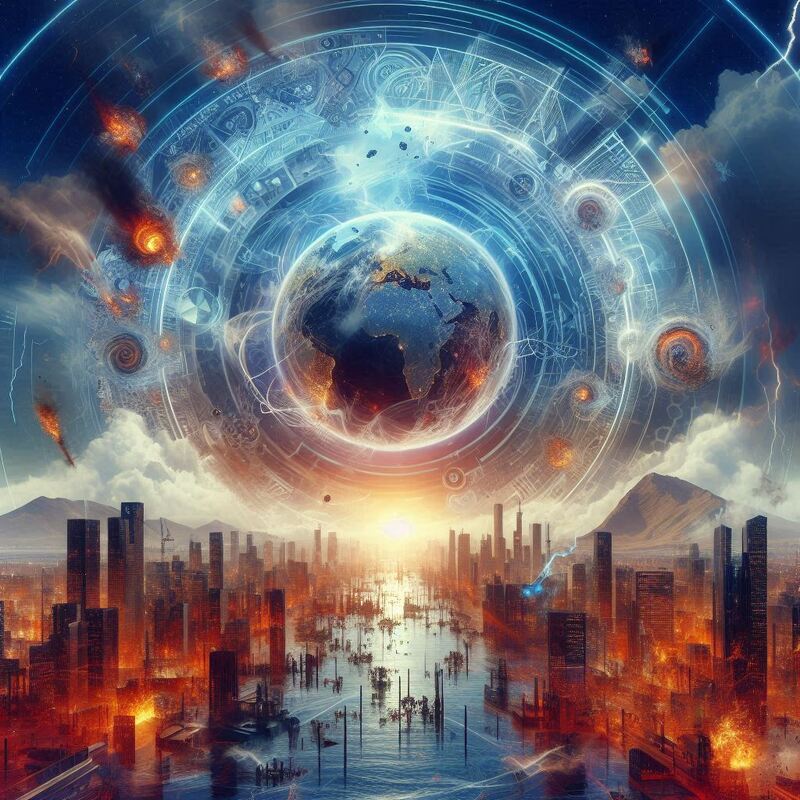
End-of-the-world myths are replete with motifs of destruction and renewal, symbolizing the cyclical nature of existence and the eternal struggle between chaos and order. In the Hindu tradition, the god Vishnu appears in the form of the avatars Matsya (fish), Kurma (turtle), and Varaha (boar), rescuing humanity from cosmic floods and restoring balance to the universe. Similarly, the Norse myth of Ragnarök depicts the cataclysmic battle between gods and giants, culminating in the destruction of the old world and the dawn of a new age.
Finding Courage in the Face of Adversity
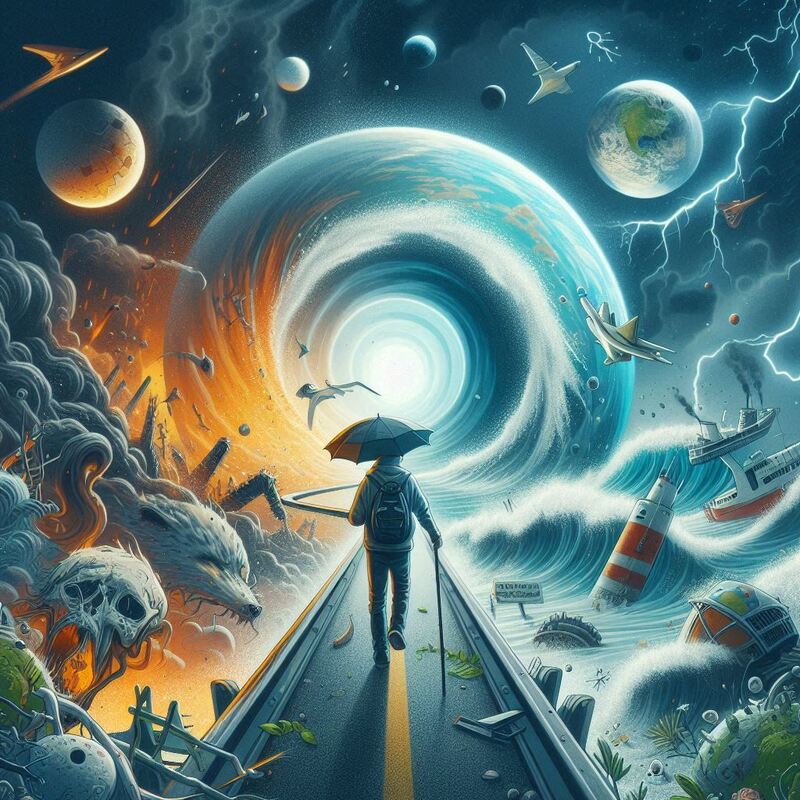
From Catastrophe to Courage
Despite the dire circumstances depicted in end-of-the-world myths, they also contain elements of courage, heroism, and resilience. In the Mesopotamian epic of Gilgamesh, the hero Utnapishtim survives a great flood by building an ark, demonstrating resourcefulness and determination in the face of impending doom. Likewise, the biblical story of Noah’s ark portrays Noah as a righteous man who, guided by divine instruction, saves humanity and the animal kingdom from destruction.
Lessons for a Brighter Future
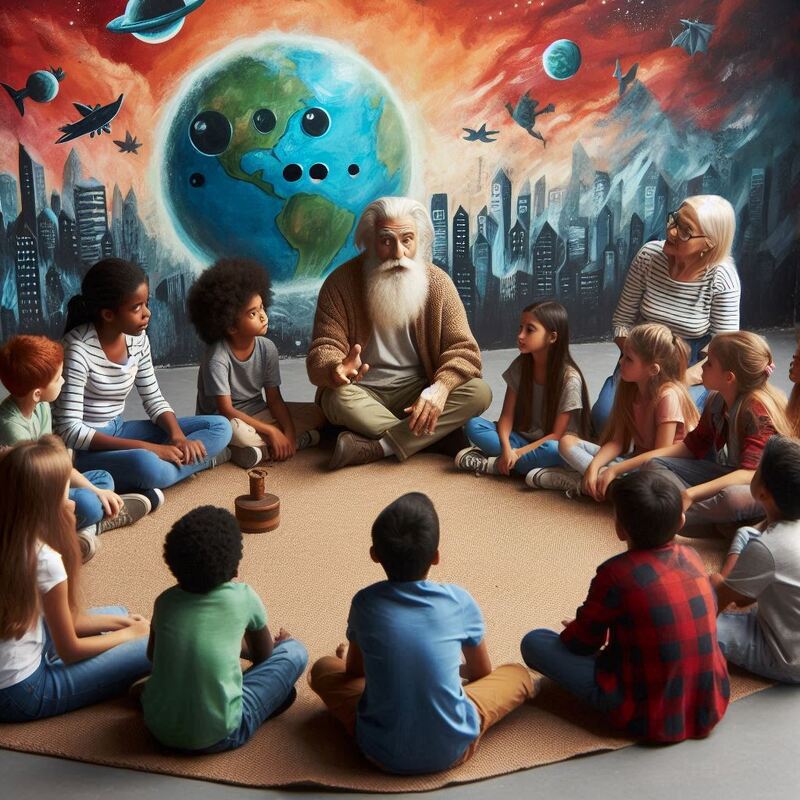
In contemplating end-of-the-world myths, we are reminded of the fragility of life and the interconnectedness of all living beings. These ancient narratives challenge us to confront our own mortality and to consider the legacy we wish to leave for future generations. Instead of succumbing to fear and despair, we can draw inspiration from the courage and resilience of mythic heroes, forging a path toward a brighter and more sustainable future.
From Catastrophe to Courage
Embracing Environmental Stewardship
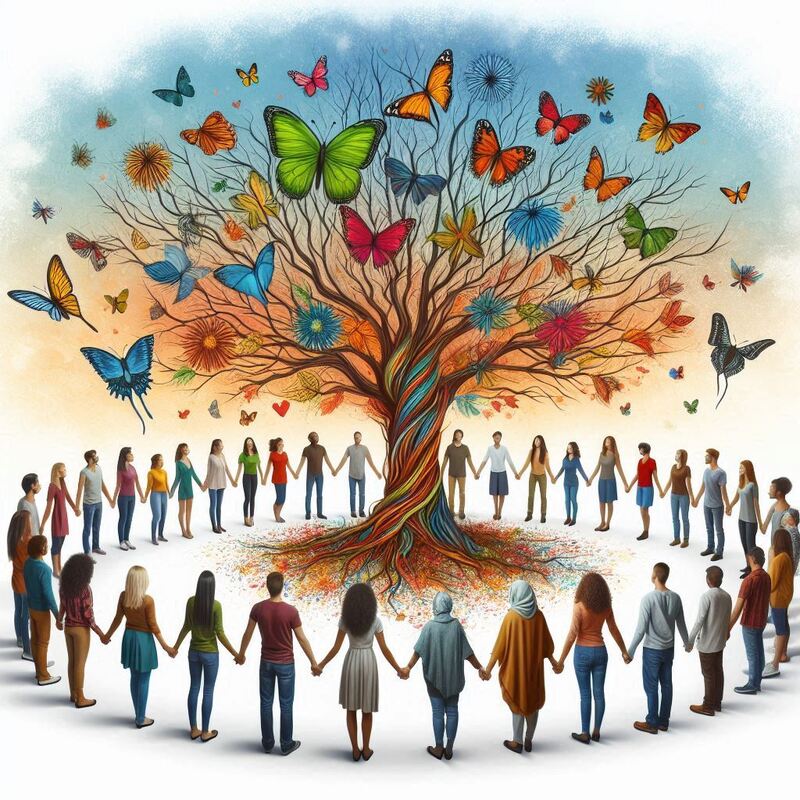
Many end-of-the-world myths are rooted in environmental themes, reflecting humanity’s long-standing relationship with the natural world. From the biblical flood to the Mayan prophecy of 2012, these myths underscore the importance of environmental stewardship and the consequences of ecological imbalance. By heeding the warnings of these ancient tales, we can strive to protect and preserve the delicate balance of our planet, ensuring a harmonious coexistence with nature for generations to come.
Cultivating Compassion and Empathy
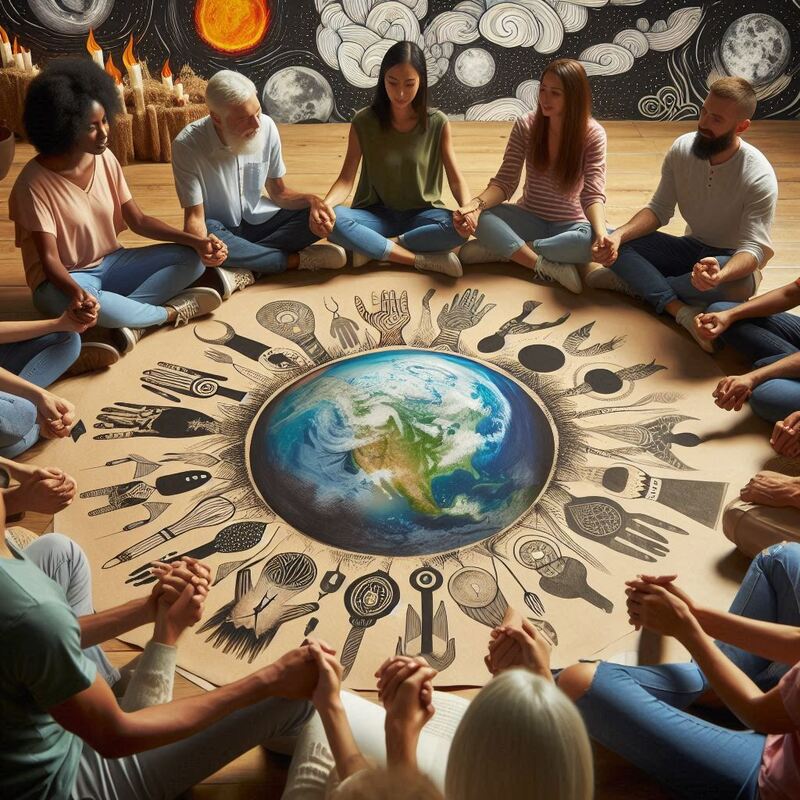
From Catastrophe to Courage
End-of-the-world myths also highlight the power of compassion, empathy, and solidarity in times of crisis. Whether it is the selfless sacrifice of a hero or the collective efforts of a community, these myths emphasize the importance of coming together in times of adversity. By fostering empathy and understanding, we can build stronger, more resilient communities capable of weathering any storm and emerging stronger on the other side.
Harnessing the Power of Hope and Imagination
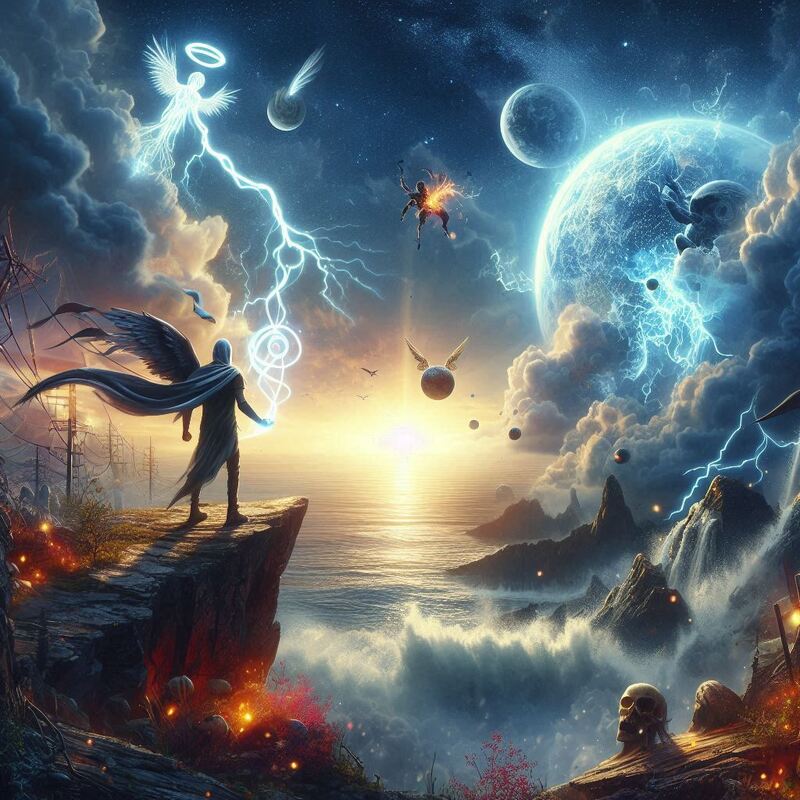
Ultimately, end-of-the-world myths invite us to harness the power of hope and imagination in shaping our collective destiny. In the face of uncertainty and upheaval, it is our capacity for resilience, creativity, and innovation that will carry us through the darkest of times. By envisioning a future grounded in compassion, sustainability, and social justice, we can transform the narrative of apocalypse into a story of renewal, regeneration, and boundless possibility.
From Catastrophe to Courage
Conclusion
End-of-the-world myths serve as profound reflections of humanity’s deepest fears, aspirations, and values. While these ancient narratives may depict cataclysmic events and existential threats, they also contain seeds of courage, resilience, and hope. By exploring these myths with an open heart and mind, we can glean timeless wisdom and inspiration for navigating the challenges of our own time. Let us embrace the lessons of the past, cultivate courage in the present, and chart a course toward a brighter, more sustainable future for all.
